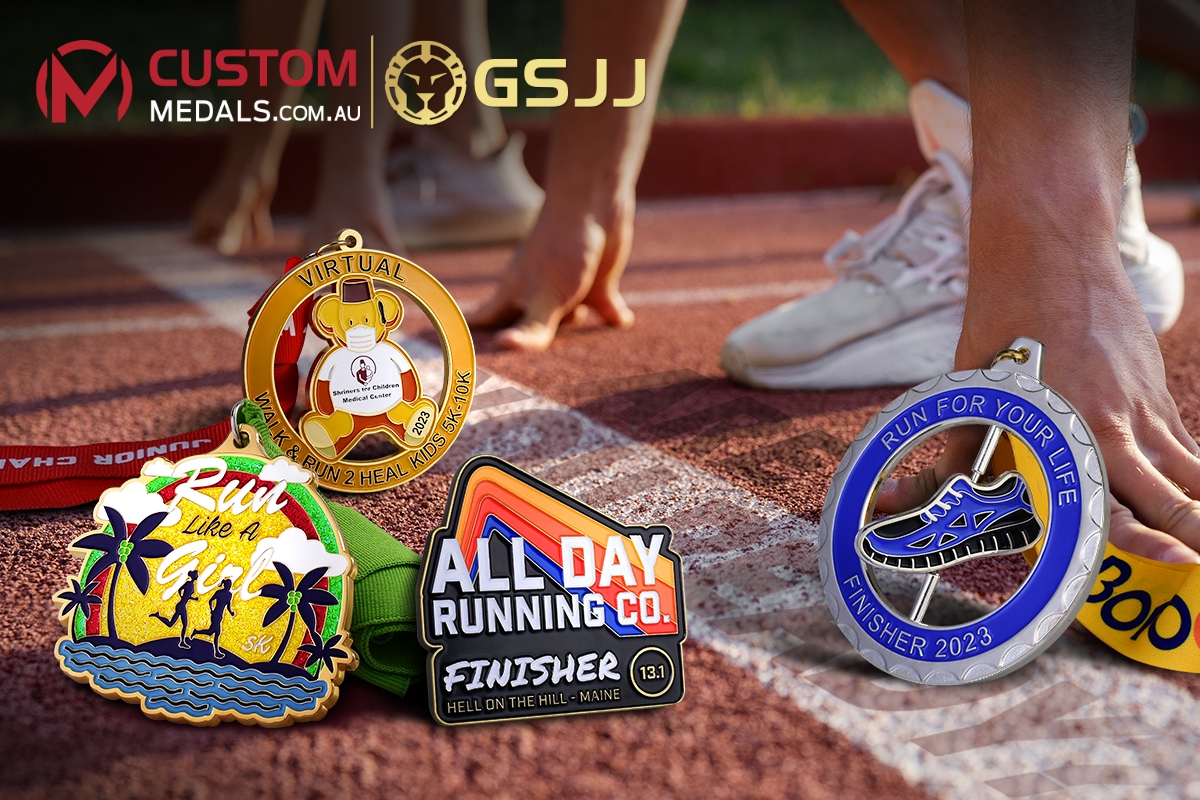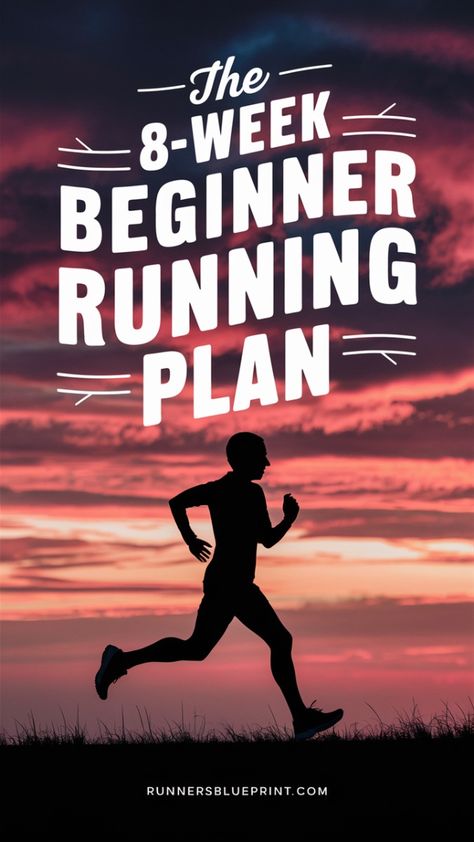Planning to start running but don’t know where to begin?
Then you need a beginner-friendly running plan.
When I first decided to start running, it seemed a bit overwhelming. The thought of hitting the pavement was intimidating, even for just a few minutes.
But here’s the thing: it doesn’t have to be!
In today’ post, I’ll walk you through it, step by step, with the plan I wish I had back then.
We’ll start slow and steady—trust me, it’s the best way to stay injury-free and enjoy the process.
Let’s get to it.
Start Slow—Seriously
I can’t stress this enough: my biggest mistake early on was going too hard and fast.
I’d lace up my shoes and think I could crush a few miles.
Let’s just say, it didn’t end well
I ended up with shin splints that sidelined me for weeks.
Not just beginners who are guilty of this. Even if you’re already in shape and have great shoes, running’s still a pretty intense, high-impact sport.
Not much we can do about that.
So my advice? Start slow and steady
When you’re just starting, you’re building a foundation, which takes time.
Think of it this way: you wouldn’t try to lift the heaviest weight in the gym on your first day, right? The same goes for running. Your muscles, tendons, and joints need time to adjust to the new impact.
That’s where the rule of gradual progress comes into the picture. Skip this step, and you’re likely to end up with an injury.
Here’s how many miles to run per week as a beginner.
How Long Does it Take?
Sorry, I don’t have the EXACT answer because every runner is different and responds differently to the high-impact stress of running.
In other words, it all depends on the individual.
To give you some perspective, the following are the factors to consider when determining how long it should take you to become a runner.
- Your current shape—or how to fit you where before you take up running.
- Your age. The younger you are, the quicker you can get in shape.
- Your current body weight. If you are overweight or many pounds heavier, then chances are it’s going to take you a little bit longer than someone with a healthy weight.
- Your running program. If you follow my free beginner running plan, there’s a strong chance you can make it ASAP.
The Run-Walk Method
Let’s talk about something that saved me when I started—Jeff Galloway’s run-walk method.
I’ll be honest: I wasn’t thrilled at the idea of walking in between my runs at first. I thought it would slow me down. But here’s the truth: it made running doable and helped me avoid injuries.
With this method, you mix in walking breaks with your runs. It could be 30 seconds of jogging followed by a minute of walking or more running and less walking as you get fitter.
It’s about finding a rhythm that works for you. When I first did this, I ran longer and felt stronger without realizing it!
Finding the Right Balance Between Walking and Running
To get the most out of run-walk, find the balance that works for you. And that entirely depends on your starting point.
Here are three walk-to-running ratios to experiment with:
- The Newbie: Jog for 20 to 30 seconds. Then walk for one to two minutes
- The Intermediate: Jog for three to five minutes. Then take a two to three minutes walking break.
- The Experienced: Jog for eight to ten minutes. Then walk for 30 seconds to one full minute.
What’s more?
Remember to take those walk breaks before you’re too tired to continue
Keep It Conversational
I always love to say: “If you can’t hold a conversation, you’re going too fast.”
Your pace should be relaxed when you start, like chatting with a friend. This is what we call a “conversational pace.” If you’re huffing and puffing, slow down. It’s not about speed in the beginning—it’s about consistency and building a base.
Time First, Distance Later
Here’s another lesson I learned the hard way: don’t focus on distance immediately. It’s tempting to hit that 5K or 10K milestone, but building up your stamina first is more important. Focus on the amount of time you spend running, not the distance. When your body is ready, the distance will come naturally.
Don’t Skip Rest Days
Trust me on this one—your body needs time to recover. When I first started, I thought I could just power through every day, but all it got me was sore muscles and burnout. Plan two weekly rest days, and don’t feel guilty about them. Rest days are just as important as your running days.
The Right Shoes
One last thing—ensure you’re running in shoes that work for your feet. Trust me, good shoes make all the difference. It was like night and day when I switched to a pair that properly supported my feet.
My 8-Week Plan For Beginner Runners
This eight-week program is designed to take you from a complete beginner to being able to run a 5K distance comfortably
My beginner plan assumes that you’re a beginner runner who can already walk briskly for one hour four to six times per week. If that’s out of the realm of possibility, I’d recommend starting with a walking plan first.
Note: if you can already run for more than half an hour with ease, then skip this.
Experienced runners may up the ante by doing other forms of running, such as sprints, hill reps, or working on increasing mileage for the long run.
P.S – You can also Try this couch to 5K Treadmill plan.
In order to motivate yourself to complete this running plan, you can customize some prizes, such as Custom Medals.
You can design medals according to the weekly plan, and incorporate running elements, goal achievements, and some motivational words into the design of custom medals. Imagine that every time you achieve a certain achievement, you receive a custom medal, which is not only a recognition of your previous efforts but also an incentive for your future exercise.
If you also want to motivate yourself better, the custom medals on custommedals.com.au will not let you down.
Beginner Running Plan – Week 1:
Warm up by walking for 5 minutes at a brisk pace.
Then alternate running for one minute at an easy pace followed by three minutes of brisk walking.
Example: Run 1-minute, walk 3-minute.
Repeat the cycle 5 to 7 times.
Finish off the sessions with a 5-minute easy walk.
Do three sessions per week.
Beginner Running Plan – Week 2:
Run 2-minute, walk 2-minute. Repeat six times.
Do three workouts.
Beginner Running Plan – Week 3:
Run 3-minute, walk 1-minute. Repeat five times.
Do three workouts.
Beginner Running Plan – Week 4:
Run 5-minute, walk 90-second. Repeat four times.
Do three workouts.
Beginner Running Plan – Week 5:
Run 8-minute, walk 1-minute. Repeat three times. Do three workouts.
Beginner Running Plan – Week 6:
Run 12-minute, walk 1-minute. Repeat three times. Do three workouts.
Beginner Running Plan – Week 7:
Run 15-minute, walk 1-minute and run another 15-minute. Do three workouts.
Beginner Running Plan – Week 8:
Run 30-minute at an easy and controlled pace. Do TWO workouts.
This is a basic beginner plan, so feel free to adjust this program to meet your own needs and fitness level.
Frequently Asked Questions
I know that as a beginner runner you have more than one lingering question on your mind right now. Let me adress some of the most common ones.
What if I miss a day in my running plan?
Missing a day in your running plan is perfectly normal, especially when you’re just starting out. If you miss a scheduled run, don’t stress! Simply pick up where you left off and continue with the plan. Consistency is important, but so is listening to your body. If you feel tired or unwell, it’s okay to take an extra rest day.
Can I repeat a week if needed?
Absolutely! If you feel that a particular week’s workouts are challenging or you want more time to adjust, feel free to repeat it. The goal of this plan is to build a strong foundation, and taking the time to feel comfortable with your running will pay off in the long run. Listen to your body and progress at a pace that feels right for you.
How do I know if I’m overdoing it?
Pay attention to your body. Signs of overtraining can include persistent fatigue, unusual soreness, or lack of motivation to run. If you experience any of these symptoms, it may be a sign to take a break or reduce your running intensity. Incorporating rest days and cross-training can also help prevent overtraining.
What should I wear for my runs?
Wearing the right gear can make a significant difference in your running experience. Invest in a good pair of running shoes that fit well and provide the support you need. Comfortable clothing made from moisture-wicking materials will help keep you dry and chafe-free. Don’t forget to check the weather and dress appropriately for conditions!
How can I stay motivated throughout the plan?
Finding motivation can be a challenge, especially in the beginning. Setting achievable goals, tracking your progress, and running with a friend can all help keep you motivated. Joining a local running group or participating in virtual challenges can also create a sense of community and accountability.
More Resources for The Beginner Runner
For more beginner running advice, check some of my posts here:
- Who invented running
- The history of running – Wikipedia
- Learn here which running app would be the best to track your training progress.
- Here’s how to create a running plan
Join the Community!
I want to hear from you! Whether you’re just starting your running journey or have been hitting the pavement for a while, sharing your experiences can help others and enrich our community. What challenges have you faced as a beginner runner? What tips or strategies have worked for you?
Feel free to share your thoughts and questions in the comments section below. Your insights can inspire and motivate fellow runners who are navigating their own paths.




Hi, just read your 8 week beginner program found it on Pinterest. Any advice for someone starting out that is obese, I am talking 70-100 lbs over weight. I was thinking that maybe don’t be so concerned with the 8 week duration don’t think of it in a time sense, think of it more as progress. I was also thinking instead of trying to run for the first week how about walking really brisk instead, where you really get your heart rate up that minute doesn’t sound very long but if you are out of shape and overweight maybe just taking baby steps would be better. Any thought on this would be appreciated. Cheers Lisa
Wow this helped a lot, I am now able to do the mile run at school. Yes!
This is a fantastic training program! I’m not a big fan of running, but this really help me getting into running at easy pace… Thank you!!
haha thats so funny we had to do that to in under 8 minutes :/ so i did this and i really liked it. i would run to seaside and back , and i liked it so much i did crosscountry!
Any breathing tips as this seems to always be my problem even though I only have seasonal asthma and use an inhaler before a workout. I know listening to music would help but I’m deaf with a cochlear implant and its hard having 2 diff. Devices on me in order to use an iPod or MP3 player. I live in Phoenix AZ. Are you aware if there are any training places for beginners?
Thank you!
Run for 1 minute, I can’t run for 15 seconds. How does someone warm up before running.
You are more than welcome.
I don’t know about that. I think a simple google search will do the trick
Thank you
Okay then.
Warm up by walking for 10 mintues then alternate between 5 to 10 seconds slow jogs and one to two minutes walking intervals. That should do the trick for now
Is it possible to down load this as a short audio to count the minutes while you are running?
Yes it’s possible
Hi Cheryl, I also have allergy problem. I used sinus rinse and take Clarin( I do take Triease essential oil,work really good) I have Cochlear implant too. You should have a mic to hook up to your ipod or cell phone. I used them both when I running and workout. Good luck!!
Hey, i’m willing to do this beginner running program, i just have a question. If I do this on a Treadmill, when you say “run” you mean like 6/7 km/h?
Run or jog at a pace that feels most comfortable to you. I think 6 km/h is a good starting point but it’s really up to you. Please keep me in the loop with your progress Oriana
Happy Running!
Any suggestions for stretching to go along with this plan?
Please check my stretching section
Great plan for beginners!
I just started this 8-week running plan, and I’m feeling motivated already! The tips on pacing and building endurance are super helpful. Can’t wait to see my progress over the weeks!
This 8-week plan looks fantastic! I’ve been wanting to start running but didn’t know where to begin. The gradual increase in distance feels really manageable. Excited to give it a try and hopefully stick to it! Thanks for the motivation!
I absolutely loved this 8-week beginner running plan! It’s perfectly structured and easy to follow. I appreciate the gradual increase in distance and the rest days built in. Can’t wait to start my running journey with this! Thank you for sharing!
This plan is exactly what I needed to get started with running! I love that it’s structured yet flexible. Can’t wait to see my progress over the next eight weeks! Thanks for sharing!